| | | | | | | Presented By Walmart | | | | Axios What's Next | | By Jennifer A. Kingson, Joann Muller and Erica Pandey ·Aug 30, 2021 | | Good Monday morning! We're kicking off the week with a look at what's next in courtship. Plus, we'll fill you in on the crunchy future of sweets. - Also: Please send us pictures for the What's Next photo competition! Shoot us a line or two about what your picture says about our ever-evolving lifestyles: whatsnext@axios.com.
- Today's winner is at the bottom.
Today's Smart Brevity count: 1,024 words ... 4 minutes. | | | | | | 1 big thing: The future of dating is hybrid | 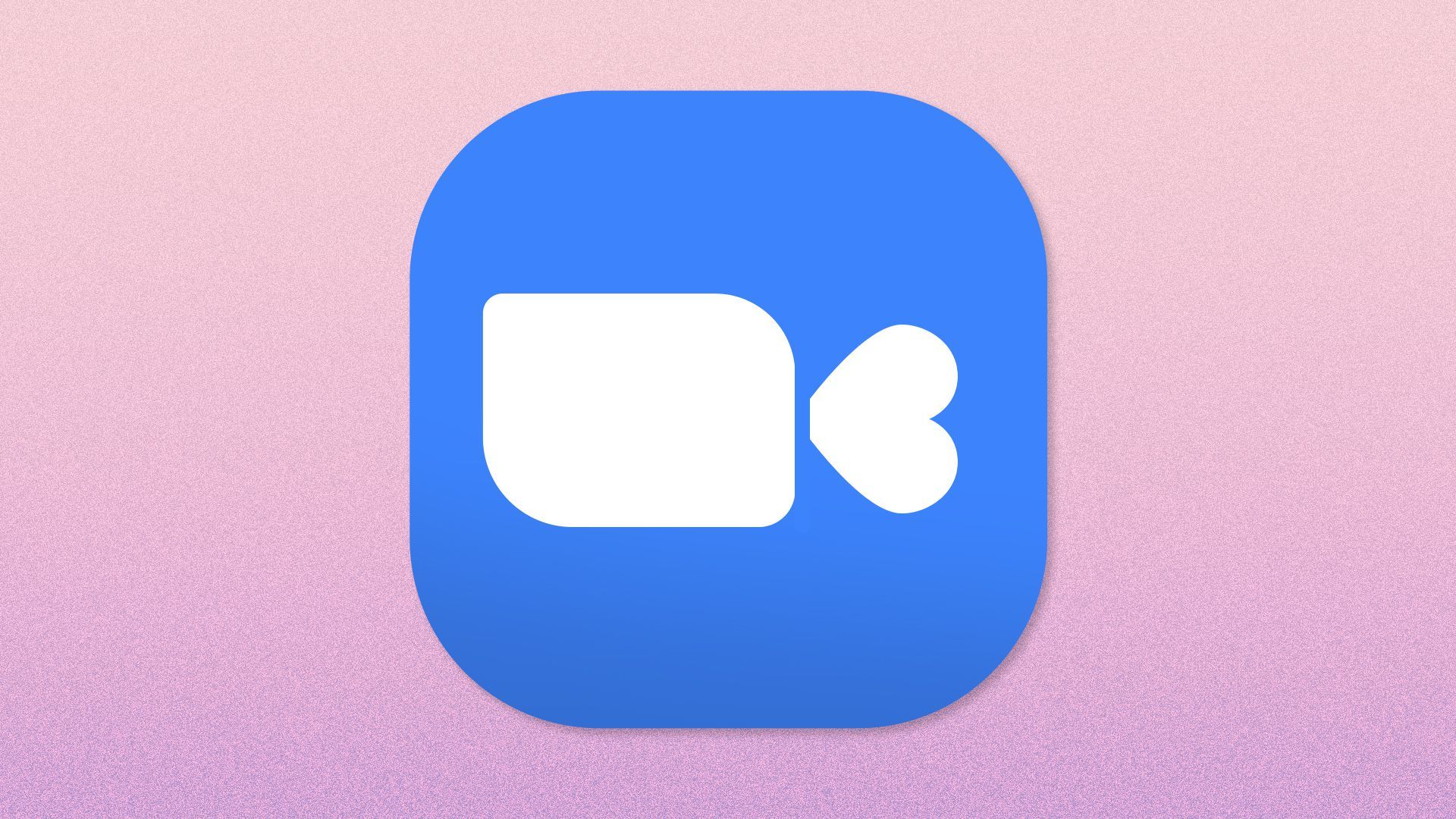 | | | Illustration: Shoshana Gordon/Axios | | | | Social distancing popularized video dates — and they'll outlast the pandemic, Erica Pandey reports. The big picture: Dating is expensive, and many people are deciding they'd rather meet virtually first in case it doesn't work out. By the numbers: The average American spends a total of about $700 annually on dates, according to a 2019 LendingTree study. "But the pandemic was a jolt to our systems," says Logan Ury, a behavioral scientist and the director of relationship science at Hinge. - "Video chat was normalized, and it's only natural that it would extend to dating, because dates can be really costly and time-consuming."
So just as people are now saving time and money on commuting and eating out with hybrid work, they're saving money on those first-impression drinks and dinners via hybrid dating. - At the beginning of the pandemic, almost no Hinge users had been on a virtual date, per a survey conducted by the dating app. Now, close to half of them (44%) have been on a video date, and 65% of those people say they'll incorporate virtual dating into their routines even when it is safe to meet in person.
- 37% of Hinge users say they're open to being exclusive with someone before ever meeting in person.
On top of that, 44% of Hinge users say they're nervous about dating again because they worry their social skills may have atrophied during the pandemic. - Virtual dating — at least for the first date — can be a smooth way to ease back into the process, because the stakes are lower than in person, says Ury.
But, but, but: In the age of Zoom fatigue, it's important for people to think of ways to separate video dates from work meetings, experts say. - Martine, a 29-year-old New York woman, told the New Yorker she meditates beforehand and picks a festive Zoom background or sits in front of her paintings as a conversation-starter.
What's next: The pandemic may be turning more people away from hook-up culture and toward serious dating. About 75% of Hinge users say they're looking for a relationship. - "During the pandemic, people had a lot of time alone to think about who they are, what kind of relationships they've been in in the past, and what they want in the future," Ury says. "Now there is really this feeling of, 'I'm not going to wait around.'"
Share this story |     | | | | | | 2. What's next in background checks | 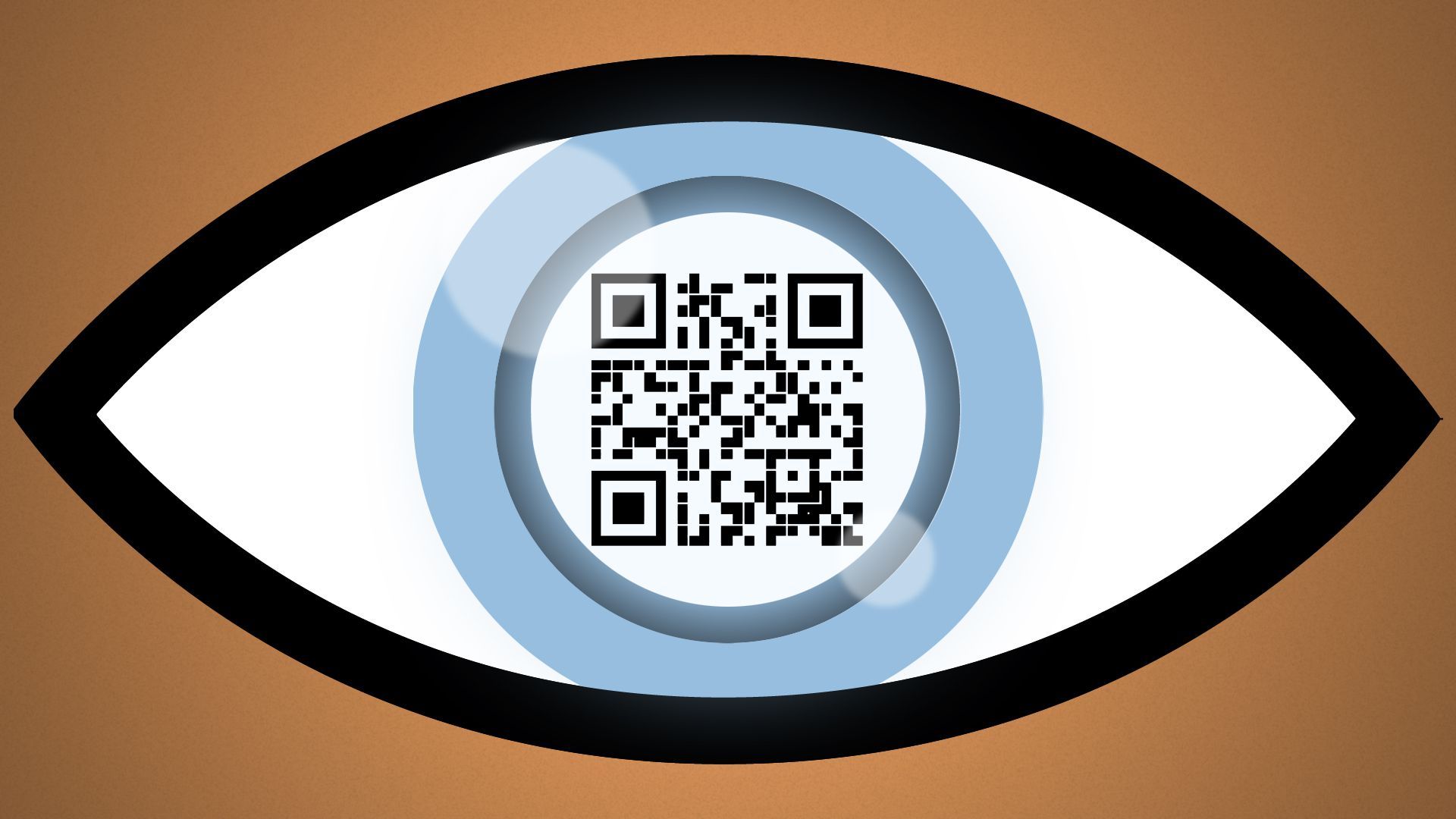 | | | Illustration: Megan Robinson/Axios | | | | The biometric ID company CLEAR — which most people know as a quick way to get through airport security and prove vaccination status — is adding new lines to its business, including employee background checks, Erica writes. Why it matters: Background checks can cost up to $100 per hire and take several days, and such checks are often not available when trying to hire an independent contractor. - CLEAR is partnering with the company Checkr to link workers' background checks to their CLEAR apps, so they can flash those checks the way they'd flash a driver's license to prove ID.
The big picture: CLEAR is betting that consumers are sick of using documents to prove ID. "Any time you have to stop and prove that you are you, we believe CLEAR can help," says Catesby Perrin, EVP of growth at CLEAR. - Tying background checks to identity can be especially useful in the gig economy, as when people are hiring babysitters or helpers to assemble furniture off the internet, says Kristen Faris, senior vice president of sales solutions at Checkr.
- "The more comfortable consumers feel with interacting with strangers via platforms and bringing those strangers into their home or businesses, the better it is for those workers," Faris says.
But, but, but: Giving companies like CLEAR access to more and more of our data — from our faces to our vaccination statuses to our background checks — raises privacy concerns. - Look for these questions around data privacy to keep coming up as technology and identity collide.
- "Privacy and control are our guiding force," says Perrin.
Share this story |     | | | | | | 3. What the youngs are craving: Pebbley, crunchy, chocolatey mash-ups | 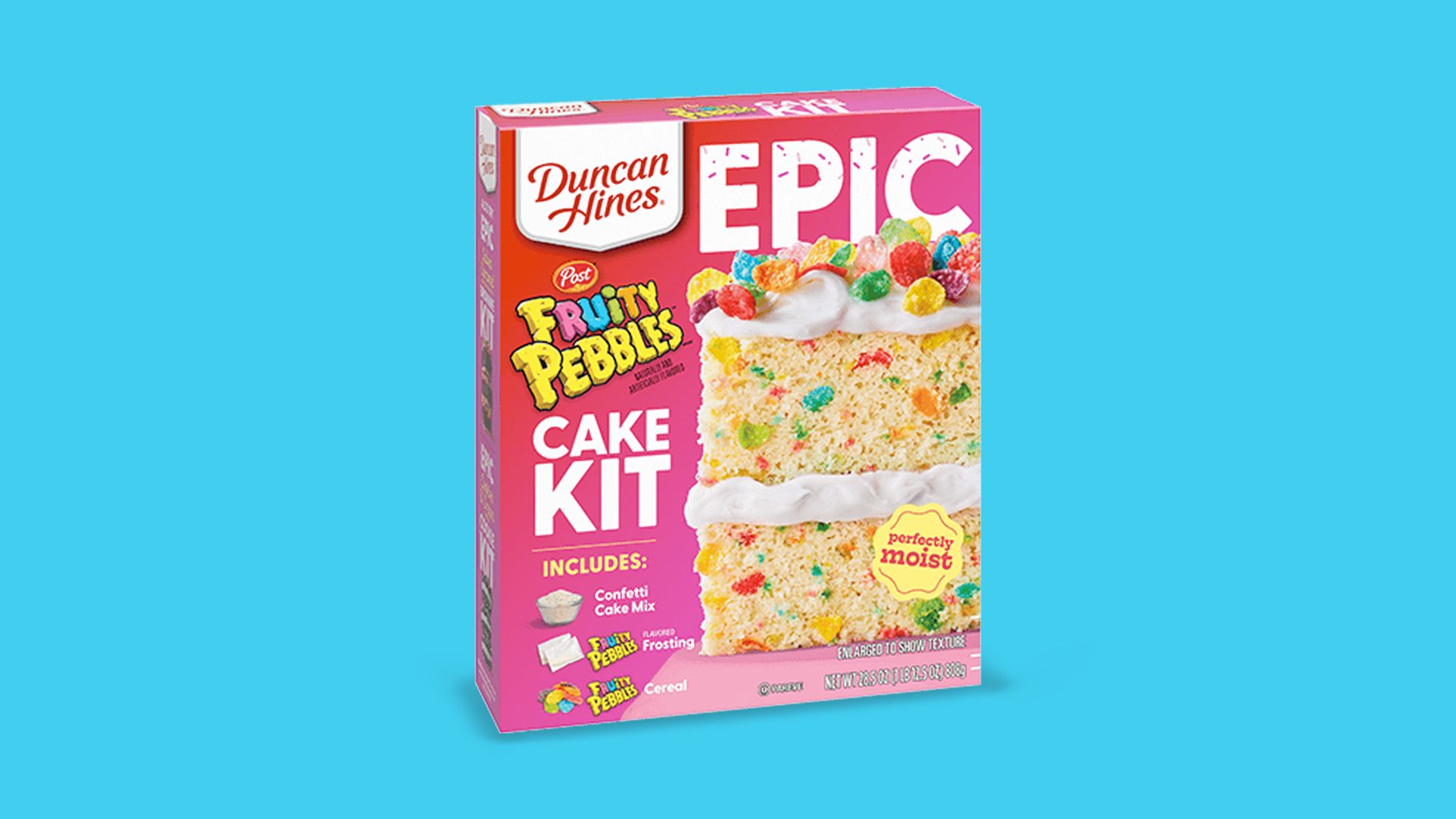 | | | Screenshot: Axios Visuals | | | | New foods that play on nostalgia and comfort — like "dessert and candy mash-ups" — are the focus of food manufacturers as they cater to the palates of millennials and Gen Z, per the market research firm Mintel, Jennifer A. Kingson writes. What's happening: In an article titled, "Trending flavors: co-branding and collaborations in desserts and confections," Mintel's Alyssa Hangartner argues that consumers, particularly younger ones, are seeking out familiar foods from childhood. - "Nostalgic flavors and products bring a sense of comfort, in a time when consumers seem more affected by stress than ever before," the article says.
- "Brands and foodservice operators alike are crisscrossing product categories from soda to cereal to deliver consumers a playful and even somewhat nostalgic experience."
Details: Products that fall in this sweet spot (forgive the pun) include: - A confetti cake mix from Duncan Hines that includes Fruity Pebbles flavored frosting and mix-ins.
- A frozen dessert from Kraft Heinz called "Kit Kat Colliders Twisted Vanilla Flavored Dessert."
- An ice cream from Milk Bar that features cornflakes, chocolate chips and marshmallows.
What's next: "Pudding and brownies are perfectly positioned for hybrid innovation," Mintel reports. My thought bubble: Finally, there's something that young adults and their Boomer parents can agree on. Share this story |     | | | | | | A message from Walmart | | Walmart to pay college tuition for nearly 1.5M eligible associates | | | 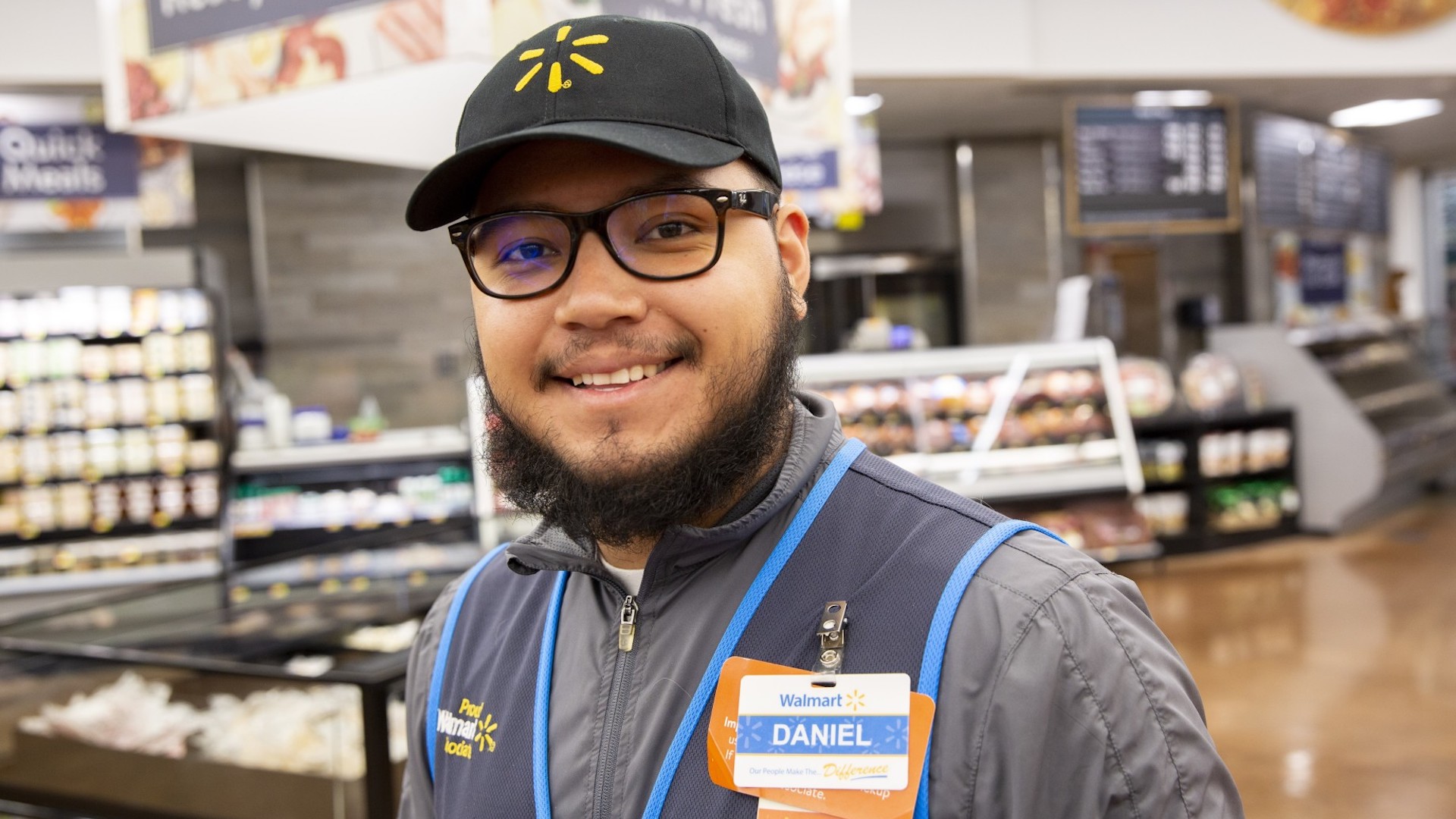 | | | | Walmart is focused on creating a ladder of opportunity for associates to learn and grow by offering programs like Live Better U, which now pays for 100% of college tuition and books for eligible U.S. associates. Why it's important: Over 52,000 associates have enrolled since 2018. | | | | | | 4. Your car is nagging you by email | 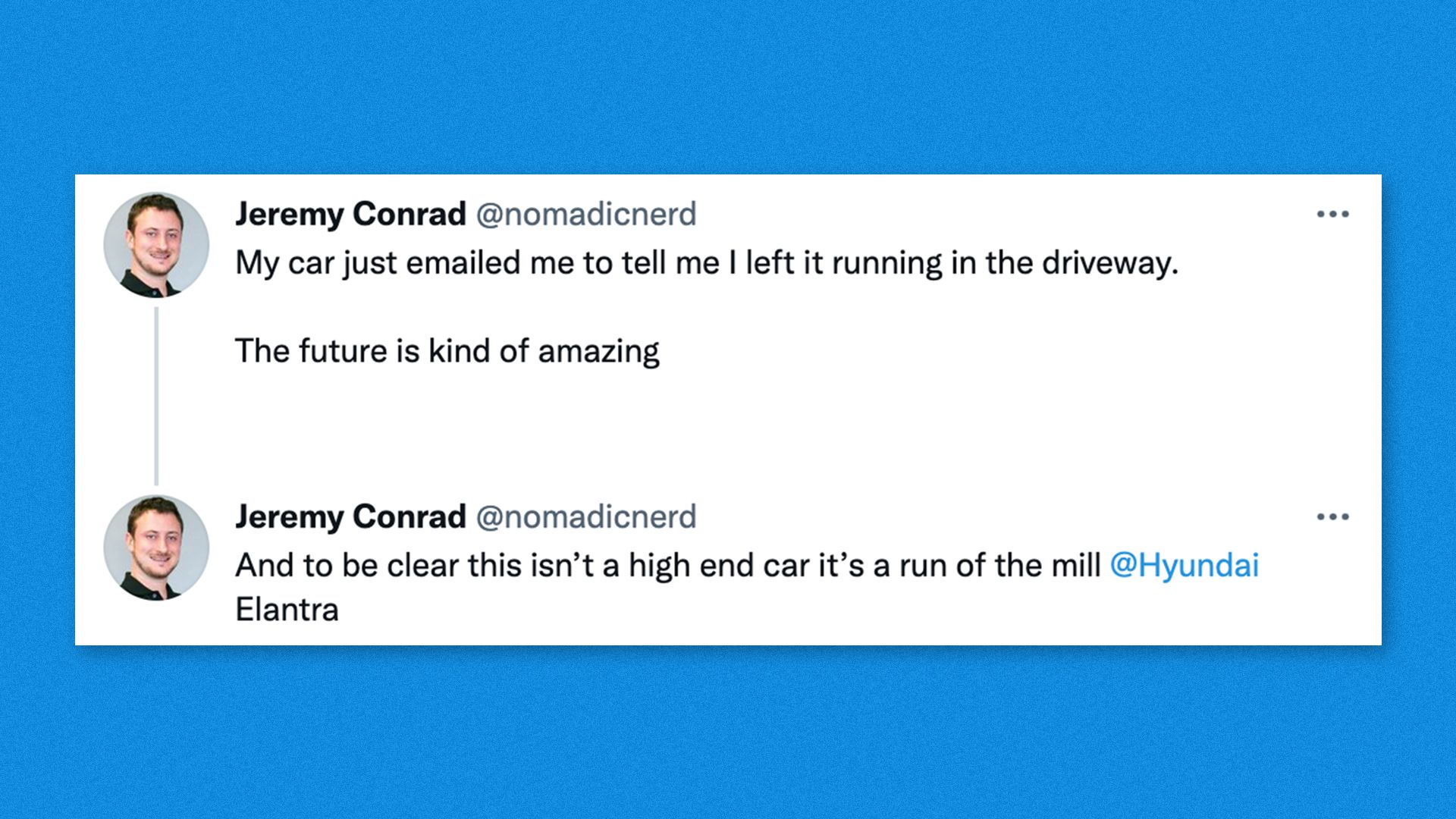 | | | Screenshot: Kia Kokalitcheva and Axios Visuals | | | | Jeremy Conrad, the co-founder and CEO of Quartz (the construction startup, not the business publication) — who is also a partner at the early-stage venture firm Lemnos — tweeted this out. - Nice to see what technology seems futuristic to a hardware V.C.!
|     | | | | | | 5. Reader photo of the day | 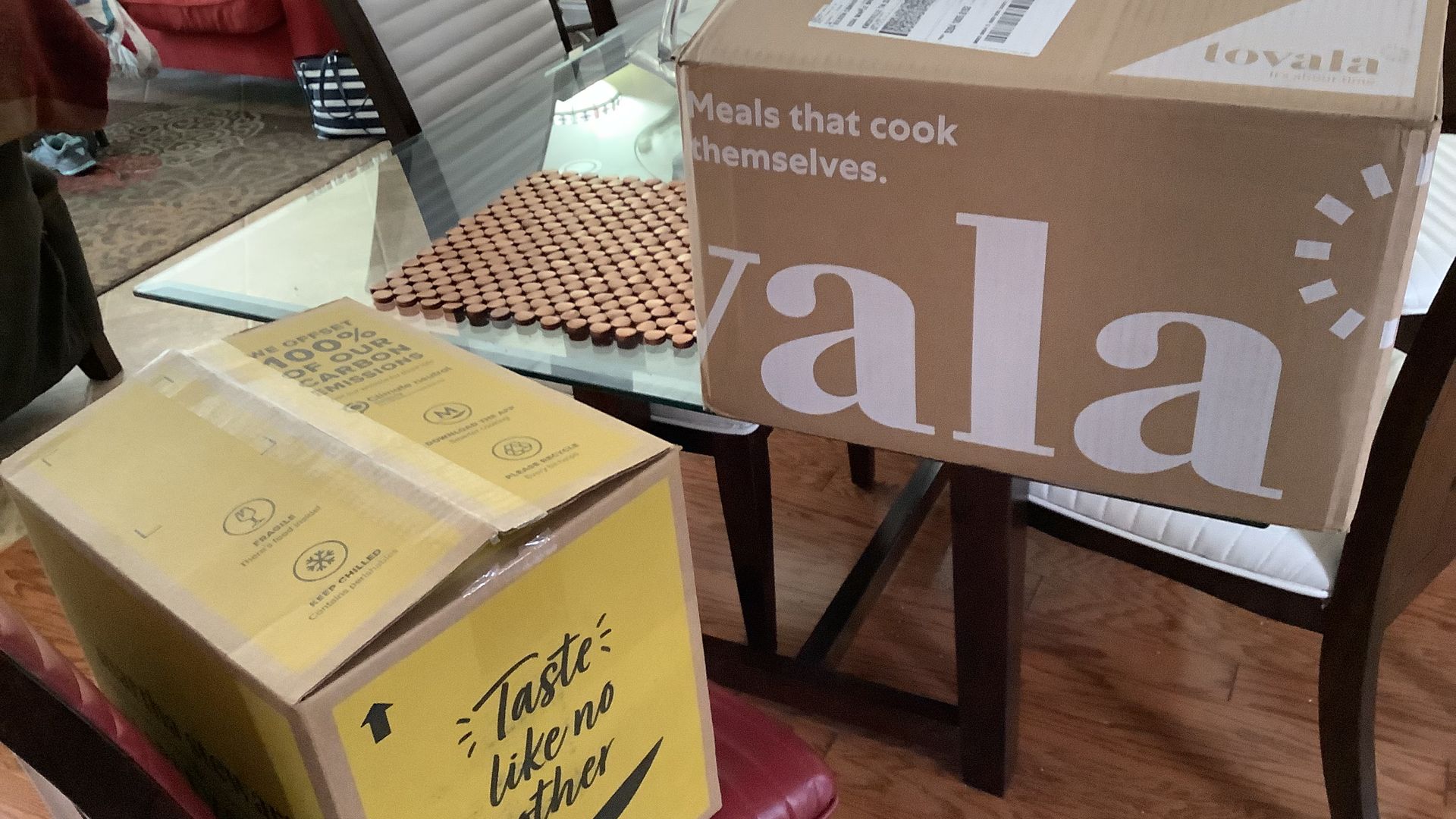 | | | Photo: Reader John Conway shows the meal prep kits in his living room in Knoxville, Tennessee. Credit: John Conway | | | | What's Next: More remote meal choices for seniors John Conway of Knoxville, Tennessee, writes: "Home delivered meal service is already here. Cost, convenience, safety and healthy choices make sources like Tovala and Marley Spoon great for small families and retirees. They mean fewer trips to grocery stores and their maskless customers as well as reduced carbon output from less driving. "They [the boxes] are filled with 3 complete meals (minus drinks) from the two listed suppliers, and no, I do not work for either of these companies nor any advertising or delivery services associated with them. I am happily retired, and like my wife's choices of complete meals from a box." |     | | | | | | A message from Walmart | | Walmart commits nearly $1B in career training for associates | | |  | | | | Through Live Better U, Walmart's tuition-free education benefit, eligible U.S. associates have the potential to: - Prepare for their professional goals and ambitions.
- Learn leadership, people and project management skills.
- Build their own careers and professional capabilities.
| | | | Are you on vacation this week? We thought so. Plenty of time for you to send photos, comments and suggestions to whatsnext@axios.com. And tell your beach buddies to sign up for What's Next! Subscribe here. |  | | It'll help you deliver employee communications more effectively. | | | | | | Axios thanks our partners for supporting our newsletters. If you're interested in advertising, learn more here.
Sponsorship has no influence on editorial content. Axios, 3100 Clarendon Blvd, Suite 1300, Arlington VA 22201 | | | You received this email because you signed up for newsletters from Axios.
Change your preferences or unsubscribe here. | | | Was this email forwarded to you?
Sign up now to get Axios in your inbox. | | | | Follow Axios on social media:    | | | | | |









No comments:
Post a Comment